Hurricane Causes 27 Deaths, Severe Damage In Mexico's Acapulco
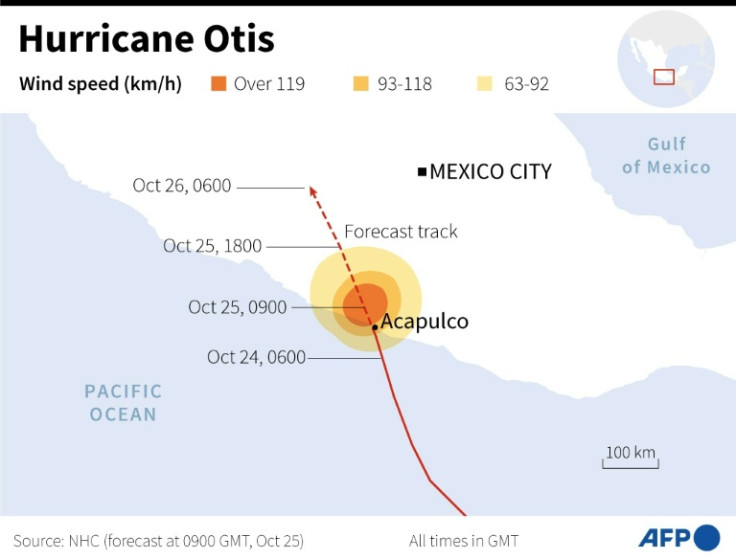
Hurricane Otis caused at least 27 deaths and major damage as it lashed Mexico's resort city of Acapulco as a scale-topping category 5 storm, officials said Thursday.
Otis crashed into Acapulco with furious winds of 165 miles (270 kilometers) per hour, shattering windows, uprooting trees and largely cutting off communications and road links with the region.
The storm partially destroyed many buildings, leaving gaping holes in the walls of high-rise towers.
President Andres Manuel Lopez Obrador arrived at the scene late Wednesday, after his convoy found roads blocked by landslides and other debris, forcing officials to walk part of the way.
Some residents slogged for hours through mud and debris in an attempt to find food and shelter.
"Acapulco is a total disaster. It is not what it was before," said 24-year-old Eric Hernandez.
"The shops had all been looted, people were fighting for things. So we decided to walk as there wasn't anything left there," he said.
Others said an overflowing river and collapsed bridges had cut off communities near Acapulco, home to about 780,000 people.
"People were left homeless, there's no electricity," said Israel Perez, a 21-year-old baker.
Security Minister Rosa Icela Rodriguez told a news conference Thursday that 27 people were dead and four were missing.
Three of those unaccounted for were soldiers, Lopez Obrador said after returning to Mexico City.
He described the storm as "disastrous" and said that it was only thanks to the actions of people who sought shelter that there were not more deaths.
Most of the victims were swept away by overflowing rivers, according to authorities.
The government would begin an airlift to deliver aid and materials to the region, Lopez Obrador said.
Telephone communications began to resume while the main highway from Mexico City to Acapulco was reopened.
Otis rapidly intensified within hours from a tropical storm to the most powerful category of the five-step Saffir-Simpson scale before hitting land, taking authorities by surprise.
"It's unprecedented in the country in recent times, not only because of the way it strengthened so quickly but also the magnitude of the hurricane," Lopez Obrador said.
The World Meteorological Organization described the hurricane as "one of the most rapidly intensifying tropical cyclones on record."
People recounted a terrifying ordeal as Otis made landfall overnight Tuesday-Wednesday.
"The building shook as if there was an earthquake," Citlali Portillo, a tourist accommodation manager, told the television channel Televisa, adding that she had taken shelter in a bathtub.
The storm overturned vehicles and even left a car in the lobby of a luxury hotel, surrounded by broken glass and debris.
Fishing boats and yachts were washed ashore.
Jose Luis Flores, a 72-year-old visitor from San Diego in the United States, said his vacation had become a "tragedy."
Soldiers worked to clear the streets of mud and fallen trees.
Some residents were seen taking food, water and other goods from looted stores.
But others arrived too late.
"We can't find food. All the stores are already looted," said empty-handed resident Guillermina Morales.
The government said that it had activated an emergency plan to bring essential supplies.
The military was distributing 100,000 food packages and 800,000 liters of water, with more supplies on the way, a statement said.
Hurricanes hit Mexico every year on both its Pacific and Atlantic coasts, usually between May and November, though few make landfall as a Category 5.
Scientists have warned that storms are becoming more powerful as the world gets warmer with climate change.
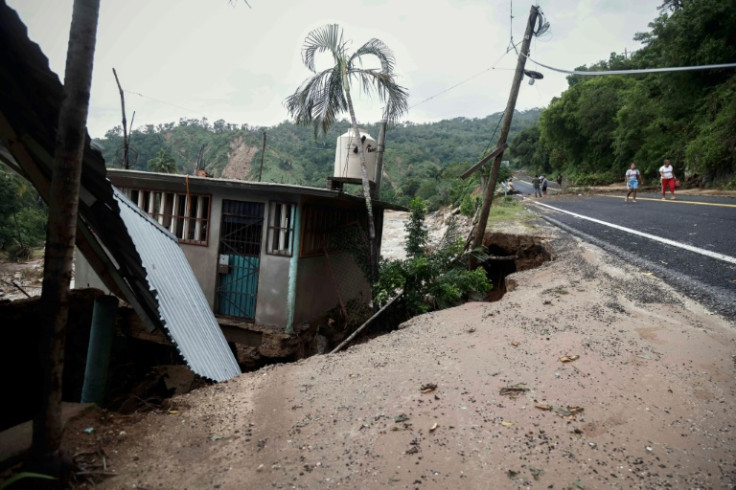
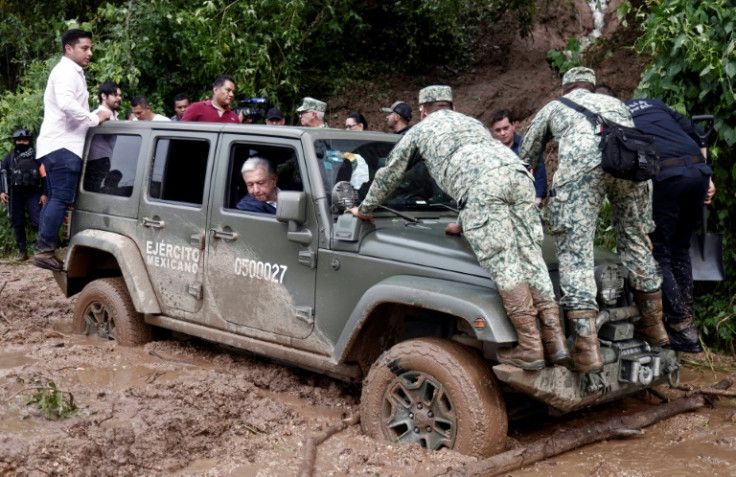
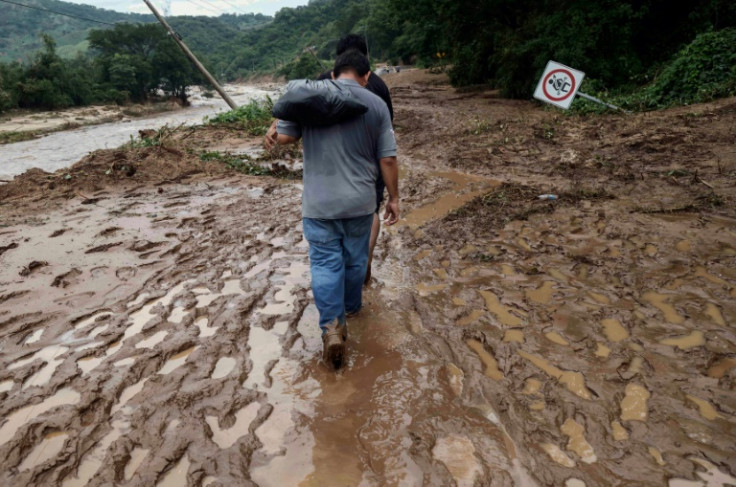
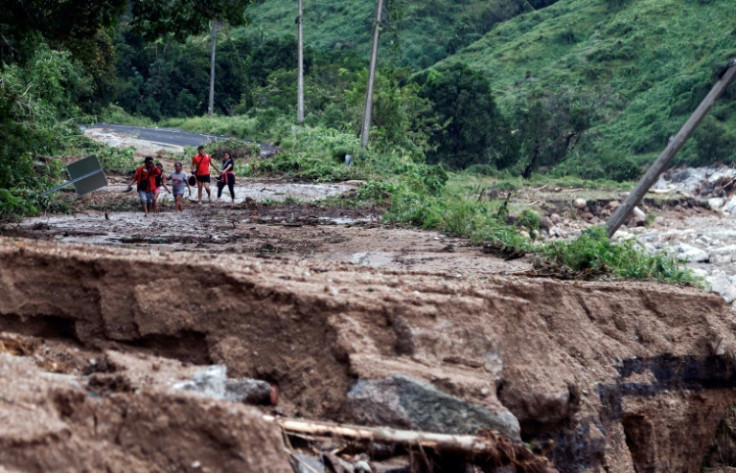
© Copyright AFP 2025. All rights reserved.





















